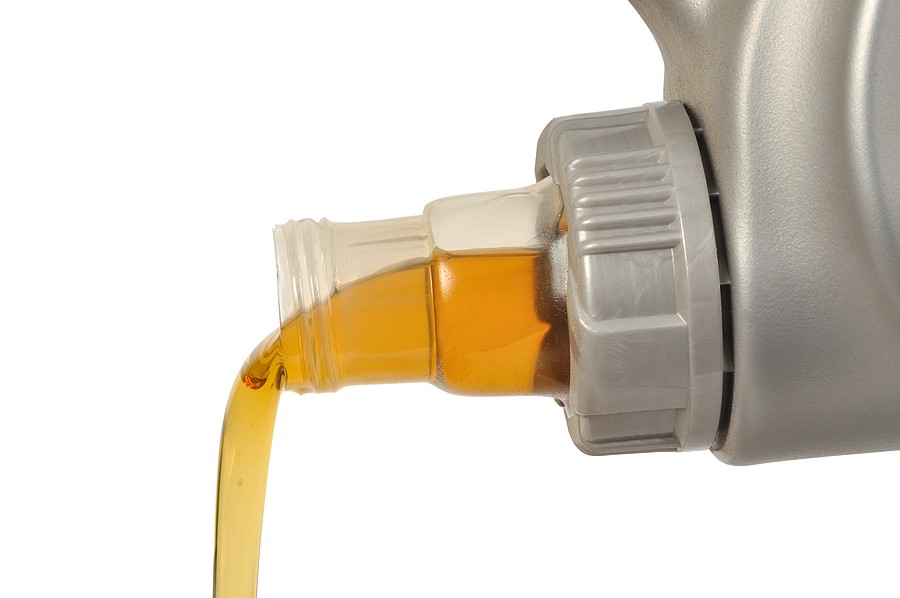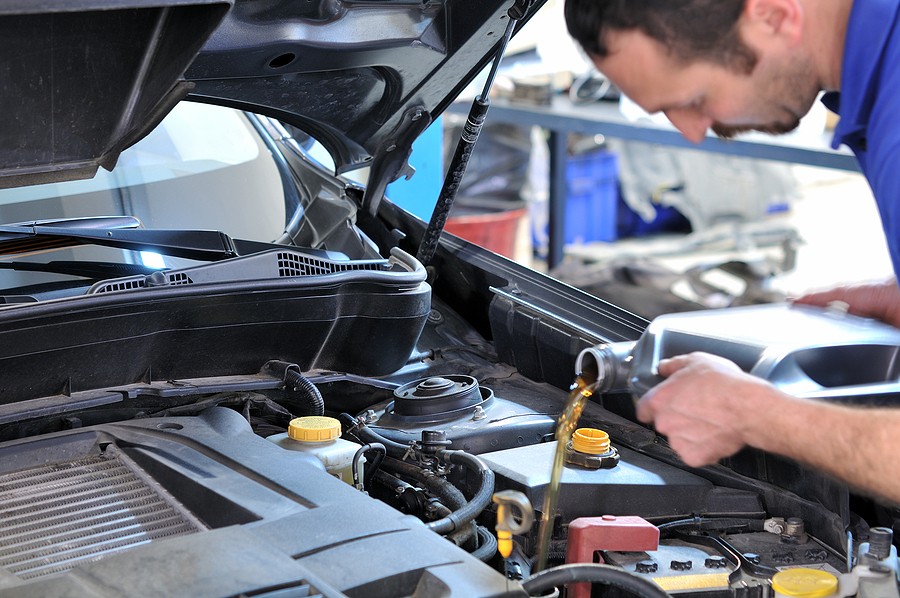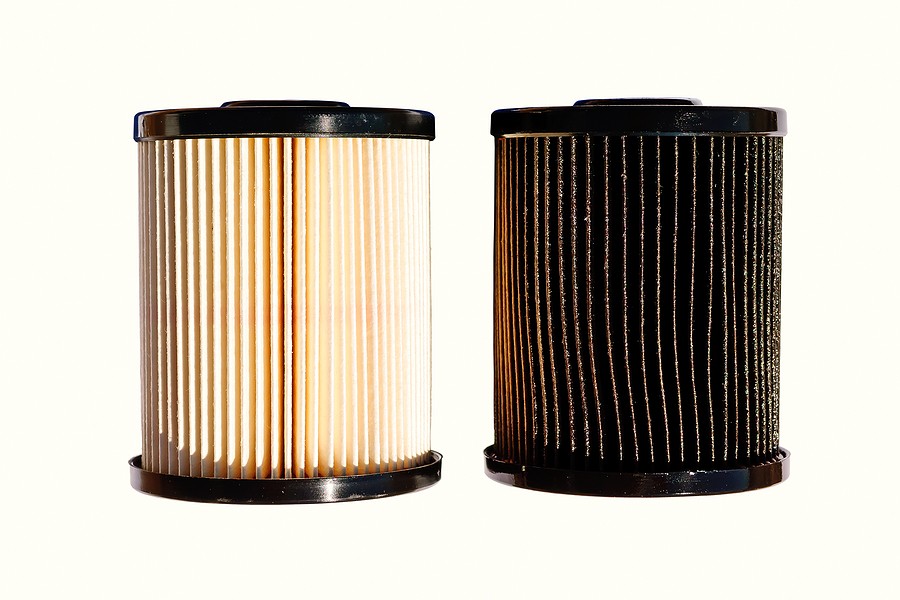In this oil filter 101 article, we will provide you with details about the open filter, when to change it, how to change it, how much it costs to change it, and other details.
The oil filter is a very small component that is not very expensive. However, it serves a very important job, and many of us sometimes underestimate or don't pay much attention to it. Therefore, learning one or two things about the oil filter helps you get away from significant situations that might cost you thousands of dollars on repair if ignored.

Oil filter 101: what is the oil filter?
The first and most important thing you must understand about the oil filter is what it is and does. The oil filter is a filter that is responsible for preventing any contaminants or debris from getting to the engine's oil.
If the oil gets dirty and the oil filter isn't there, the oil will not serve its job. In other words, the oil's characteristics will be impacted significantly, and the oil will not be able to lubricate the engine and prevent overheating fully. Thus, while the oil filter might sound like a small component, it plays a major role.
Think about the oil filter as a controlling station that prevents foreign objects from getting through and going inside the engine’s component. This way, your engine's sensitive components will be protected continuously, and the oil will serve its job properly without any disturbances.
When to change the oil filter?
Since the oil filter gets clogged over time, you'll like to learn about when to change it. Therefore, as part of our oil filter 101 courses, we would like to highlight and give you an idea about when to change the oil filter.
Typically, most automotive experts recommend changing the oil filter whenever you perform an oil change. That is probably the same lifespan of the oil filter, but in some instances and depending on the quality of the oil filter, you might get away without needing to change the oil filter.
This gets us to the point that not all oil filters are the same, and some high-quality oil filters can stand long times without needing to be changed. However, these oil filters might be a little bit more expensive, so it will leave for you to decide whether you go with that very expensive oil filter or deal with changing it frequently.
So, if you are looking for oil filter changes frequencies, it differs significantly depending on the quality of the filter and the type of motor oil you're having. For instance, some mechanics might advise you to change the conventional oil once every 5000 miles; however, if you have synthetic oil, you might not need to change the oil filter until you hit the 12,000 miles, if not more. Again, these numbers change significantly if you have a better or higher quality oil filter.

How much does it cost to change the oil filter?
The oil filter itself is not expensive. Changing the oil filter is one of the cheapest jobs you will do, and typically, you don't do it by itself. Instead, it comes as part of the oil change package. Therefore, it will be hard to find some rough estimates for changing the oil filter itself, but you'll find some information about changing the oil itself, including changing the oil filter.
Typically, conventional oil change ranges from $35 to $75. However, if you have synthetic oil, the cost increases significantly and approaches 125 in some instances. Going with synthetic oil doesn't require frequent oil changes, and therefore, the mechanic typically chooses a higher quality oil filter, and you won't need to change the oil filter as often.
Can I change my oil filter?
If you have a good idea about changing the vehicle's oil, you should have no problem. This is because changing the oil filter requires dealing with the old oil. However, as we mentioned earlier, the oil change involves changing the oil filter, and it's not a very significant problem and doesn't require any advanced mechanical skill sets.
If you watch some of the available online YouTube videos and get an idea about the required tools and the type of oil needed, you should be good to go. However, there are some detailed recommendations about how you take the oil filter out. Some people have made mistakes while taking oil filters out by breaking them or causing damages to the surrounding housing.
Therefore, you must be gentle as you take the oil filter out and be careful about how much you tighten the new filter so the next time you perform oil change and want to remove the oil filter, you shouldn't have a problem.
How do I know if the oil filter is clogged?
Maintaining a healthy oil filter is extremely important if you want to have a perfectly running car and prevent future damage. Therefore, you should be aware of some of the symptoms indicating a clogged oil filter. As we mentioned before, your mechanic should immediately replace the oil filter whenever you perform an oil change. However, some inexperienced mechanics might forget about replacing oil filters.
Therefore, let's take a closer look at some of the common symptoms of a clogged oil filter. First, note that if the oil filter is clogged because of old oil, you'll see other symptoms indicating that it is time to change your vehicle's oil rather than the oil filter only.

1. Reduction in your vehicle's performance
The first and most obvious symptom indicates that your oil filter is clogged whenever you notice that the engine's performance is reduced significantly. Of course, this might be related to a long list of potential culprits. However, the clogged oil filter might be one.
At this point, you can reach out to your mechanic and have him perform an inspection of the oil filter or probably ask them whether he changed the oil filter the last time he changed the oil or not. This gets you an idea about whether it's an issue related to a bad or clogged oil filter or not.
2. Issues with the low oil pressure
If the oil filter is clogged, a very limited amount of oil will reach the different engine components. Therefore, the overall pressure in the oil system will be impacted. You'll see this in the form of a warning light on your dashboard showing that there is not enough or low motor oil pressure.
Again, a low oil pressure might be related to various other reasons. Therefore, you should look at the more severe issues like a leak or other internal damages before suspecting it's a bad or clogged oil filter. But, of course, if the major culprits are not causing the issue, you will need to check the oil filter anyways.
3. Weird loud noises
When the engine doesn't receive the right level of revocation because of a clogged oil filter, you'll start noticing some weird metallic noises. This happens when the internal metallic components grind against each other and cause some friction. If you get to this point, it indicates that your oil filter is completely clogged, and that's a critical situation that you should take seriously immediately.
4. Excessive exhaust smoke
As a driver, you should know how much smoke your car should have in normal conditions. For example, your vehicle will make some smoke as you start it when it's cold. However, you shouldn't see clouds of smoke whenever you're driving your car for longer distances.
In other words, if you start noticing that the exhaust system is making a bunch of smoke, it could be an internal problem. The problem could be related to various other issues, but a clogged oil filter might be the culprit. Note that if you got to this point where the exhaust system is making all of the smoke, you should take them seriously because you might get to a point where repair costs will be expensive.

5. Engine overheating
If you ignore a clogged oil filter for a long time, you might get to a point where your engine starts overheating because it doesn't receive the right level of lubrication. This happens; you can easily get into engine self-destruction in no time. Therefore, whatever is preventing you from changing the oil filter should not be more important than what you'll deal with when the engine starts overheating.
Oil filter 101: How do I know which oil filter do I need?
Choosing the oil filter might be a bit challenging if you choose your own. In other words, your mechanic might advise you to choose one to depend on their availability. However, does that mean it's the best oil filter for your vehicle? Let's read on below:
1. Check your owner’s manual
The first and easiest way to check what type of oil filter your vehicle needs is by going back to your vehicle’s owner’s manual. The manual should have details about the minimum requirement for the type of oil filter and probably the sizes and other details about what you should choose if you're in
Note that the manual's filter recommendations are probably the minimum. If you're looking forward to taking it to the next level and planning to purchase a higher quality oil filter, you might want to go through the other factors in this list.
2. Understand your driving style
Did you know that the oil filter choice depends on your driving style? Yes! Some types of oil filters are designed specifically to provide you with additional strength and filtering capabilities if you are driving in many stop-and-go traffic conditions. However, these filters are a bit more expensive, and if you don't drive on city roads much, you might not want to invest in this type of filter.
On the other hand, you can go with a slightly lower quality oil filter but not lower than what's recommended in the vehicle’s owner’s manual if you're driving on the highways or if your driving style doesn't require a higher quality high-performance filter.
3. Understand the size
Many inexperienced drivers think that choosing a bigger oil filter is better. However, a bigger oil filter is not always better because it depends on other factors regarding how the filter was designed.
The filter has a lot of different capabilities and factors that you should investigate. For example, there are flow rates, bypass value, filtering media, etc. All these factors play an important role in determining the performance of the oil filter. Thus, do not go by size when choosing the next oil filter.
4. Choose the filter depending on the oil
Also, I don't want experts to recommend choosing a higher quality oil filter if you're selecting a synthetic oil. In other words, we know they have synthetic oil will not need frequent oil changes. However, if you choose a lower quality oil filter, your mechanic needs to replace it before you hit the expiration date of the oil. Therefore, it's going to be an extra unnecessary effort.
Therefore, you always recommend choosing a higher quality and higher performance filter if you have an expensive high-quality oil.
Oil filter 101: Final thoughts
As you might already know, engine oil is one of the most critical fluids in your vehicle. Therefore, it's important to maintain a good oil, but you also have to maintain the oil filter because it gets clogged over time.
This article serves as an oil filter 101 course. It provided you with all types of details you'll need to know about your vehicle’s oil filter. Once you go through this course, you'll understand how critical it is to maintain the oil filter and what could go wrong if you ignored it.
Note that some situations might get your vehicle to very expensive repairs. If that's the case, it could be worth investigating whether you should sell your car and buy a better vehicle or not.
Cash Cars Buyer is one of the top-rated car removal companies in the nation that guarantees to pay you the top dollars and provide you with free towing despite your living location around the united states.
Our process is very straightforward and doesn't take more than a couple of days to get your car removed safely and for the most money.
All it takes you is to:
- Describe your car’s type and condition
- Receive our instant free quote
- Accept the quote
- Get your car removed and receive your cash payment on the spot!
To learn more about our process and our teen, you can reach out to us by calling us at (773) 791-4363 or visiting our home page click on the free instant online offer.




